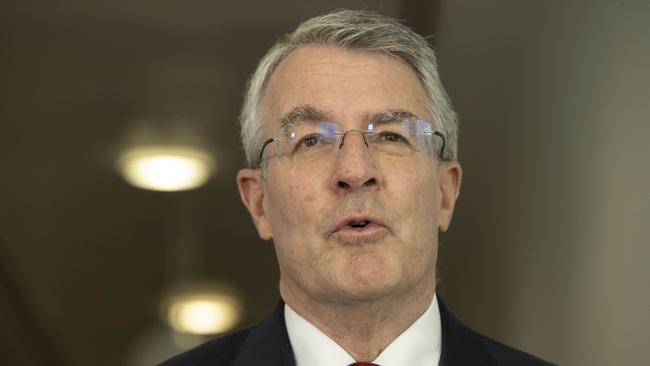Law reform to help keep women safe from abusive partners around the world
Labor has made historic changes to the way laws will be applied to ensure women fleeing with their children overseas to escape violence are not forced to return to their abusive partners.

Labor has made historic changes to the way Australian laws will be applied to ensure women fleeing with their children overseas to escape domestic violence are not forced to return to their abusive partners.
The Hague Convention was created in the 1980s to provide an avenue for children who had been taken abroad by one parent without the consent of the other to be expeditiously returned, but has since been described as a “good law gone bad” with 80 per cent of Hague cases made up of women trying to flee domestic violence with their children. In most cases, a woman will return to her abusive partner rather than send her child back home alone.
In the lead-up to the May federal election, Labor MP Anne Aly called for a review of the convention, with the risk of domestic violence to be considered by family law courts when convention is invoked.
In response, Attorney-General Mark Dreyfus promised to review the way the Hague Convention was applied and will confirm on Monday that changes have been made to ensure courts take domestic violence into account when the treaty is invoked.

“The … regulations … provide additional safeguards to parents and children fleeing family and domestic violence when Australian courts consider cases brought under the Hague Convention on the Civil Aspects of International Child Abduction,” he said.
“The regulations make clear that family and domestic violence is a relevant consideration under the ‘grave risk’ defence and a court does not need to be satisfied that such violence has occurred or will occur before it is taken into account.”
The grave risk defence refers to an exemption built into the convention that relates to a child being at such risk if returned to their country of origin, but there was no explicit direction for courts to consider the risk of domestic violence until now.
The changes follow cases such as that of 24-year-old British mother Cassandra Hasanovic, who fled with her two sons from her abusive husband to Australia in 2007, only to have the courts order for her to return them under the Hague Convention.
Rather than be separated from her sons and send them back alone, Ms Hasanovic returned with them to Britain, only to be stabbed to death by her husband weeks later.
In other cases, Australian women who tried to flee back to Australia after getting married and having children overseas have had the convention used against them by abusive partners and return to those relationships as a result.
Mr Dreyfus has previously said Ms Hasanovic’s case was “heartbreaking” and declared the changes to Australian laws would ensure victim survivors were better protected in the justice system.

“These regulations affirm that protection from family and domestic violence is an important consideration in proceedings,” Mr Dreyfus said.
“The amendments demonstrate the Albanese government’s commitment to an effective, accessible, fair and safe family law system that supports victim-survivors of family and domestic violence.”
The new regulation will come into force immediately, after being signed by Governor-General David Hurley last week.
The changes come after many decades of advocacy from international groups such as Hague Mothers and Australian groups such as Her Hague Story, which includes names such as Janine Hendry.
Ms Hendry – one of the instigators for the marches across the country following Brittany Higgins’ allegations she was raped in parliament – said reviewing the way the Hague Convention was applied would make Australia a global leader in tackling domestic violence.
“It would send a really important message to the world that as Australians we do not tolerate gendered abuse,” Ms Hendry said earlier this year.








To join the conversation, please log in. Don't have an account? Register
Join the conversation, you are commenting as Logout